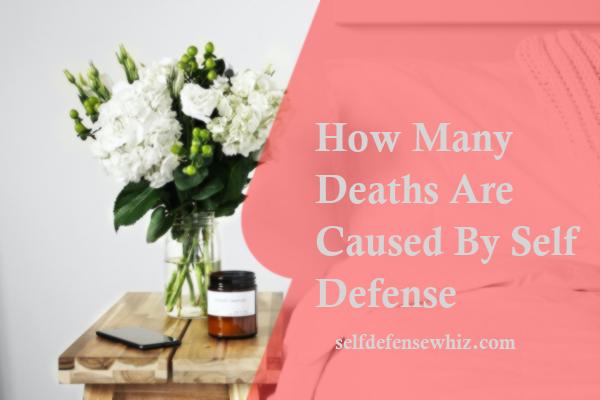Can You Use A Gun For Self Defense In Canada
Can you use a gun for self-defense in Canada? This is a question that often arises in a country known for its strict firearms regulations. While the answer may seem straightforward, it is essential to delve deeper into the legal framework surrounding self-defense and gun ownership in Canada. In **short, the use of a gun for self-defense is generally not encouraged or condoned** by the Canadian legal system. Let’s explore the intricate layers of this contentious issue to gain a better understanding of self-defense laws and the limited circumstances where firearms may be justifiably used.
Can You Use A Gun For Self Defense In Canada
In Canada, the use of guns for self-defense is strictly regulated and generally not considered acceptable. The Canadian Criminal Code states that individuals are only justified in using force, including firearms, in self-defense if they believe on reasonable grounds that force is being used against them or another person, and if the force they use is reasonable in the circumstances. However, the courts in Canada have consistently ruled that lethal force, such as firearm use, should only be used as a last resort when no other means of protection are available.
Furthermore, Canadian law requires individuals to exhaust all possible alternatives before resorting to the use of firearms. This means that the use of a gun for self-defense can be viewed as excessive if other options, such as fleeing or calling the police, were available but not utilized. It is also important to note that individuals who use guns for self-defense may face criminal charges and potential imprisonment, as well as civil liability if their use of firearms causes harm to others or damages property.
Overall, it is important for individuals in Canada to familiarize themselves with the specific laws and regulations regarding self-defense in their province or territory. Non-lethal options, such as pepper spray or personal alarms, may be more appropriate and legally permissible forms of self-defense in Canada. It is advisable to consult with legal professionals or self-defense experts to ensure understanding and adherence to the applicable laws.
Pro-tips: – Using firearms for self-defense in Canada is generally not considered acceptable and is heavily regulated. – Lethal force should only be used as a last resort when no other means of protection are available. – Exhausting all possible alternatives, such as fleeing or calling the police, is required before resorting to the use of firearms. – Non-lethal options, such as pepper spray or personal alarms, may be more legally permissible in Canada.Is Self-Defense With A Gun Legal In Canada?
In Canada, the use of a gun for self-defense is a complex and highly regulated matter. The Canadian legal system emphasizes the principle of proportionality, which means that the force used in self-defense should be no more than what is reasonably necessary to protect oneself. While Canadian law recognizes the right to self-defense, it prioritizes non-violent resolutions whenever possible.
Under the Criminal Code of Canada, using a firearm for self-defense is generally considered a last resort option. It is only legally justifiable to use a gun in self-defense if there is an immediate threat of death or grievous bodily harm, and no other means of protection or escape are available. Even in such circumstances, the law requires individuals to assess the reasonableness of using a gun and consider alternative options that may be less likely to cause harm.
Furthermore, to possess and use a firearm for self-defense, Canadians must obtain the appropriate licenses, such as the Possession and Acquisition License (PAL) and the Restricted Possession and Acquisition License (RPAL). These licenses involve strict background checks, safety training requirements, and mandatory storage and transportation regulations. Failure to comply with these regulations can result in criminal charges.
What Are The Laws Regarding Firearms For Self-Defense In Canada?
In Canada, the use of a gun for self-defense is highly limited and strictly regulated by the Firearms Act and the Criminal Code. The general principle in Canadian law is that the use of force, including firearms, is only justified when a person reasonably believes it is necessary to protect their life or the life of another person from an imminent threat of death or grievous bodily harm. However, self-defense is considered a last resort, and the law strongly encourages individuals to exhaust all other means of resolving the situation peacefully before resorting to the use of firearms.
Furthermore, the law in Canada requires individuals to have a valid firearms license and registration for any firearm they possess. The possession, acquisition, and transportation of firearms are strictly regulated, and individuals must adhere to various safety requirements and storage regulations. The use of a firearm in self-defense must also be proportionate to the threat faced, meaning that the level of force used should not exceed what is reasonably necessary to neutralize the threat.
It’s important to note that while individuals have the right to defend themselves, the focus in Canadian law is primarily on de-escalation and non-violent alternatives. The use of a gun for self-defense is considered a serious matter and its use can lead to legal consequences if not in strict accordance with the law. Therefore, Canadians are generally encouraged to rely on the assistance of law enforcement authorities in situations where personal safety is at risk.
Are There Other Non-Lethal Self-Defense Options Available In Canada?
In Canada, the use of guns for self-defense is highly regulated and restricted. The Canadian Criminal Code states that the use of firearms is only permitted in certain circumstances, such as in defense of oneself or others when facing an immediate threat of death or grievous bodily harm. However, the use of a firearm must be a last resort, and individuals are expected to exhaust all other means of self-defense before resorting to a gun.
Even in situations where the use of a firearm may be justified, Canadian law emphasizes proportionality. This means that individuals must use only as much force as is necessary to neutralize the threat. Using excessive force or inflicting harm beyond what is reasonably required can lead to serious legal consequences. Furthermore, the burden of proof lies with the individual who used the firearm to demonstrate that their actions were necessary and proportionate under the circumstances.
It is important to note that in Canada, carrying a concealed firearm for self-defense is generally prohibited. The possession and use of firearms are tightly regulated, and individuals must obtain a license and adhere to strict guidelines set by the Canadian Firearms Program. This includes undergoing background checks, completing safety training, and storing firearms securely. Violating these regulations can result in criminal charges and the potential loss of the firearm license.
What Are The Consequences Of Using A Gun For Self-Defense In Canada?
In Canada, the regulations surrounding the use of firearms for self-defense are quite stringent. The primary law governing firearms is the Criminal Code, which states that individuals may only use firearms in specific situations where there is a reasonable belief that they or others face an imminent threat of death or grievous bodily harm. The use of a gun as a means of self-defense is generally considered a last resort after all other options have been exhausted.
It is essential to note that simply owning a firearm for the purpose of self-defense is not sufficient justification under Canadian law. The law emphasizes that individuals must be able to demonstrate the reasonable necessity of using a firearm to protect themselves or others from immediate harm. The circumstances must meet a high standard of evidence, and the individual must be able to prove that there was no other reasonable alternative to neutralize the threat.
Moreover, the use of lethal force is not encouraged or endorsed by the Canadian legal system unless all other non-lethal options have been exhausted and it is genuinely believed that there is no other way to ensure personal safety or the safety of others. The responsibility to use firearms reasonably and proportionately rests with the individual, and they must be aware of the legal consequences and potential criminal charges that may arise from using a gun for self-defense in an unjustified or excessive manner.
Conclusion
In conclusion, while the topic of using a gun for self-defense in Canada remains a contentious issue, it is clear that the current laws and regulations heavily restrict the possession and use of firearms for this purpose. The Canadian government emphasizes the importance of the collective safety of society and firmly believes in relying on the police forces for protection. While there may be instances where individuals feel the need for personal firearms for self-defense, the majority of Canadians uphold the belief that a safer society can be achieved through stricter gun control measures and addressing root causes of crime. It is crucial for individuals to acquaint themselves with the laws and alternatives available for personal protection, such as self-defense classes, pepper spray, and personal safety devices, rather than relying on firearms as a means of defense.







